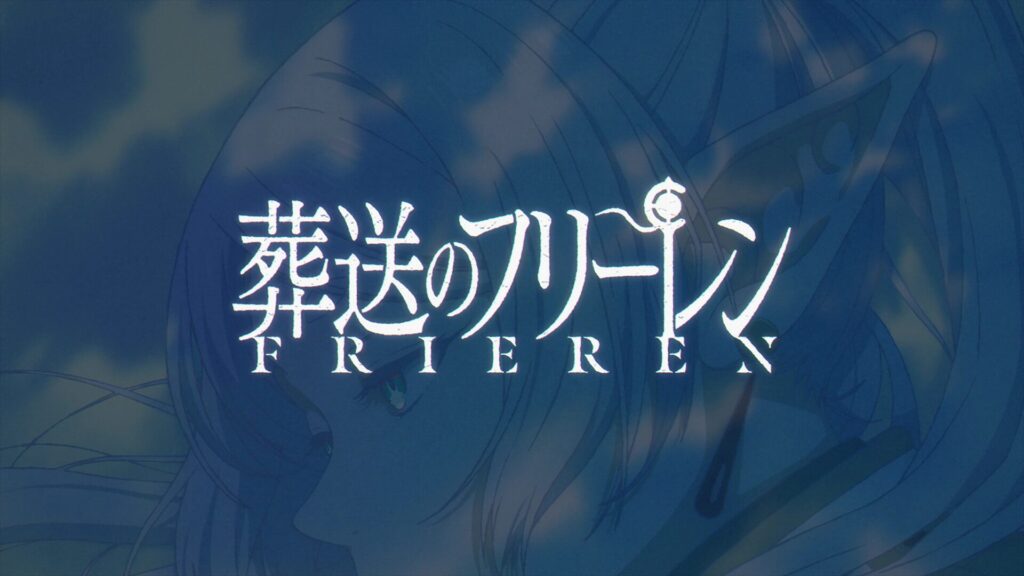
✨あらすじ:絆を試すドラゴンとの対峙
Stark, a timid young warrior, /
臆病な若き戦士スタークは /
has lived for years /
何年も /
in the shadow of a dragon’s attack. /
ドラゴンの脅威に怯えながら暮らしてきた。
Though hailed as a hero by villagers, /
村人からは英雄と称えられていたが /
he’s haunted by his own cowardice. /
本人は臆病だった自分に苦しんでいた。
When Frieren and Fern arrive, /
フリーレンとフェルンが訪れたとき /
they seek his help /
彼に助力を求めるが /
in defeating the dragon. /
目的はドラゴンを倒すことだった。
Terrified but determined, /
恐怖に震えながらも決意を固め、 /
Stark prepares for battle. /
スタークは戦いの準備を始める。
As the battle begins, /
戦いが始まり、 /
he realizes /
彼は気づく /
that true strength /
本当の強さとは /
isn’t about being fearless /
恐れを知らないことではなく /
but choosing to stand firm /
恐れてもなお立ち向かうことだと。
After the fierce showdown, /
激闘の末、 /
Stark finally proves himself /
スタークはついに自分を証明し /
and joins the journey /
旅に加わることになる /
as Frieren’s new companion. /
フリーレンの新たな仲間として。
🧠語彙解説
timid /ˈtɪmɪd/(形容詞):臆病な、気の弱い
→ 人前での行動や挑戦に対して怖がる性格を表します。
hailed /heɪld/(動詞):称賛される、歓迎される(hailの過去分詞)
→ “hailed as a hero” は「英雄として称えられる」の定型表現です。
cowardice /ˈkaʊərdɪs/(名詞):臆病、弱気
→ 感情としての「弱さ」や「逃げ腰」を意味します。
stand firm /stænd fɜːrm/(表現):踏みとどまる、勇気を持って立ち向かう
→ 困難や恐怖に負けずに行動する意志を強調する表現。
showdown /ˈʃəʊdaʊn/(名詞):対決、決着の場
→ クライマックスとなる戦いや話し合いの決着点を表します。
prove oneself /pruːv wʌnˈsɛlf/(表現):自分の力を証明する
→ 実力や勇気を見せて認められる場面で使います。
セリフ1:魂が眠る場所、オレオールへ
大陸の遥か北の果て、この世界の人々が天国と呼ぶ場所魂の眠る地、オレオールにたどり着いたそこは多くの魂が集まる場所で私はかつての戦友たちと対話した
On the very northernmost end of the continent,
I arrived at the place the people of this world call Heaven.
I now know it as Aureole, the land where souls rest.
Many spirits have gathered there.
I spoke with friends whom I once fought alongside.
🔤 語彙解説
northernmost /ˈnɔːrðərnməʊst/(形容詞):最北の
→ 「north(北)」の最上級で「最も北に位置する」という意味です。
arrive /əˈraɪv/(動詞):到着する
→ 「arrive at」で特定の場所に着く、「arrive in」は都市や国に着くときに使います。
soul /soʊl/(名詞):魂、霊魂
→ 人の内面や死後も存在するとされる「魂」を表す語です。
rest /rest/(動詞):休む、安らぐ
→ この文では「魂が安らぐ=眠る」という比喩的な意味で使われています。
gather /ˈɡæðɚ/(動詞):集まる、集める
→ 人や物が自然に集まること、あるいは意図的に集めることを表します。
alongside /əˈlɔːŋˌsaɪd/(前置詞):〜と並んで、〜と一緒に
→ 戦友や仲間などと「肩を並べて」行動した状況を表す語です。
🧠 文法・構文解説
On the very northernmost end of the continent
→ 「On + the + 最上級 + 名詞」で「大陸のもっとも〜な場所に」という位置表現。
the place the people of this world call Heaven
→ 「the place + 名詞節」で「人々が◯◯と呼ぶ場所」。関係代名詞thatが省略されている。
the land where souls rest
→ 「where」は関係副詞で「〜する場所」を表し、「rest」はここでは「眠る」という意味。
friends whom I once fought alongside
→ 関係代名詞「whom」は目的格で、「alongside」が後置されている点が重要。
I spoke with friends whom I once fought alongside
→ 「speak with + 人」で「〜と話す」。目的語が関係代名詞whomで導かれている。
📘 スラッシュリーディング訳
On the very northernmost end of the continent, /
大陸の最北端に、
I arrived at the place /
私は場所にたどり着いた
the people of this world call Heaven. /
この世界の人々が天国と呼ぶ
I now know it as Aureole, /
私は今、それをオレオールと呼ぶ
the land where souls rest. /
魂が眠る地と呼ばれる場所だ
Many spirits have gathered there. /
多くの魂がそこに集まっていた
I spoke with friends /
私は友と語り合った
whom I once fought alongside. /
かつて共に戦った友と
セリフ2:たった“100分の1”が変えたもの
そんなことも言ったっけね面白いものだな何が?その100分の1がお前を変えたんだ
Sounds like me, I suppose.
It’s funny, don’t you think?
What is?
How much that one one-hundredth has changed you.
🔤 語彙解説
suppose /səˈpoʊz/(動詞):〜だと思う、〜と仮定する
→ 自分の発言や意見に対して「まあ、そうかもね」と控えめに述べるときに使います。
funny /ˈfʌni/(形容詞):面白い、奇妙な
→ 笑えるというより「不思議」「妙だ」というニュアンスで使われることも多い語です。
one one-hundredth /wʌn wʌnˈhʌndrədθ/(名詞句):100分の1
→ 「100分の1の割合」という意味で、非常に小さい一部を強調する表現です。
change /tʃeɪndʒ/(動詞):変える、変わる
→ 性格や考え方、行動などに変化があったときに使う一般的な語です。
🧠 文法・構文解説
Sounds like me, I suppose.
→ 「sounds like 〜」は「〜のように聞こえる」という表現。”I suppose” は控えめに同意を表す語。
It’s funny, don’t you think?
→ 「It is funny」が主文で、「don’t you think?」は相手の同意を求める付加疑問文。
that one one-hundredth has changed you
→ 「that」は関係詞ではなく接続詞で「どれだけ〜が〜したか」を表す内容を導く。”has changed you” が主節。
How much that one one-hundredth has changed you.
→ 「how much」は量や程度を尋ねたり感嘆したりするときに使い、ここでは変化の大きさを強調。
📘 スラッシュリーディング訳
Sounds like me, I suppose. /
まあ、そんなことも言った気がするな
It’s funny, don’t you think? /
面白いと思わないか?
What is? /
何が?
How much that one one-hundredth has changed you. /
その100分の1が、どれだけお前を変えたのかってことさ
セリフ3:ずる賢さも、成長のしるし?
さもないと?死んだ後に化けて出ますハイター様、私が悪い子になれば、化けて出てきてくれるのですか?ずる賢くなりましたね。誰に似たんだか。
If I don’t, what?
I’ll come back as a ghost and haunt you.
So just to make certain, you’re saying that if I’m a bad girl, you’ll pay me a visit after you’re gone?
You’ve grown into quite the sly young lady. Wherever did you pick that up?
🗣️ 語彙解説
haunt /hɔːnt/(動詞):取り憑く、出没する
→ 幽霊が場所や人に現れて離れないときに使います。「化けて出る」の定番表現です。
sly /slaɪ/(形容詞):ずる賢い、狡猾な
→ 子供などがこっそり賢くふるまうときに、ユーモアを込めて使われることもあります。
pay a visit /peɪ ə ˈvɪzɪt/(熟語):訪れる、訪問する
→ 人を訪ねるときに使う丁寧な言い方で、比喩的に使われることもあります。
pick up /pɪk ʌp/(句動詞):身につける、覚える
→ 自然と習得する・無意識に学ぶという意味のカジュアルな表現です。
just to make certain /dʒəst tə meɪk ˈsɜːrtən/(表現):念のために確認すると
→ 念押しで相手に確認したいときに使う丁寧なフレーズです。
🧠 文法・構文解説
If I don’t, what?
→ 条件節の省略構文で、”what?” が後ろに来ることで「そうしなかったらどうなるの?」という意味を強調。
I’ll come back as a ghost and haunt you.
→ “come back as ~” は「〜として戻る」という意味。”haunt you” で「お前に取り憑く」。
you’re saying that if I’m a bad girl, you’ll pay me a visit after you’re gone?
→ “that” 節で相手の発言を引用。未来の仮定 “if I’m…” に対して未来形 “you’ll pay…” を使用。
You’ve grown into quite the sly young lady.
→ “grow into ~” は「〜になるよう成長する」。”quite the 〜” で「なかなかの〜」という強調表現。
Wherever did you pick that up?
→ “Wherever” に “did you pick that up?” を続けた強調疑問文。”pick up” は習得の意味。
📘 スラッシュリーディング訳
If I don’t, what? /
さもないとどうなるって?
I’ll come back as a ghost /
幽霊になって戻ってきて
and haunt you. /
お前を化けて出て呪ってやる
So just to make certain, /
念のために確認するけど、
you’re saying that if I’m a bad girl, /
私が悪い子になったら
you’ll pay me a visit /
あなたは私に会いに来るのね
after you’re gone? /
死んだ後に?
You’ve grown into quite the sly young lady. /
ずいぶんずる賢い子に育ったな
Wherever did you pick that up? /
いったい誰に似たんだか?
セリフ4:それは“アンデッド”ではない
話をまとめると死んだ身内や知り合いの幽霊が目撃されていてどれも生前の姿のまま話しかけられたという人もいたようですねこれはアンデッドの仕業じゃないね
Here’s what we’ve learned.
The ghosts take on the form of the beholder’s dead family member or friend.
They look just as they did in life.
A couple of witnesses even claim that the ghosts spoke to them.
We can conclude this isn’t the work of the undead.
🔤 語彙解説
beholder /bɪˈhoʊldər/(名詞):見る人、目撃者
→ 「見る人」という意味で、物語などでは「目撃者」や「観察者」という文脈で使われます。
in life /ɪn laɪf/(表現):生前に、生きていたころの
→ 「死後」と対比して、「生きていたときの姿・状態」を表す言い回しです。
witness /ˈwɪtnəs/(名詞):目撃者、証人
→ 事件や出来事を直接見た人のこと。「証言する人」という意味もあります。
claim /kleɪm/(動詞):主張する、言い張る
→ 証拠の有無に関わらず「〜だと断言する・主張する」ときに使います。
undead /ʌnˈdɛd/(名詞/形容詞):アンデッド、不死の存在
→ 吸血鬼・ゾンビなど「死んでいるはずなのに動く存在」を指すファンタジー用語。
conclude /kənˈkluːd/(動詞):結論づける、断定する
→ 複数の情報をもとに「〜だと判断する」ことを表します。
🧠 文法・構文解説
Here’s what we’ve learned.
→ “Here is + 関係代名詞 what” で「これが私たちが知ったことです」という強調構文。
take on the form of ~
→ 「〜の姿になる」という表現。”take on” は「(性質や形を)帯びる」。
just as they did in life
→ “just as ~” は「まさに〜のように」。”in life” で「生前の状態」を指す。
even claim that the ghosts spoke to them
→ “even” が「〜でさえ」と強調。”that” 節で内容を説明。過去形で一致。
this isn’t the work of the undead
→ “the work of ~” は「〜の仕業」。”isn’t” で断定的に否定している。
📘 スラッシュリーディング訳
Here’s what we’ve learned. /
わかったことをまとめよう
The ghosts take on the form /
幽霊は姿をとる
of the beholder’s dead family member or friend. /
目撃者の死んだ家族や知人の姿を
They look /
彼らは見える
just as they did in life. /
生きていたときとまったく同じように
A couple of witnesses /
何人かの目撃者が
even claim /
〜とさえ主張している
that the ghosts spoke to them. /
幽霊に話しかけられたと
We can conclude /
私たちは結論づけられる
this isn’t the work of the undead. /
これはアンデッドの仕業ではないと
セリフ5:命乞いの幻影、その引き金の重さ
私は命乞いをする先生の幻影を撃ったよまあ先生の命乞いは聞き慣れていたからそこまで罪悪感とかはなかったけどねだとしても気分のいいものじゃない命乞いを聞き慣れるってどういうことなんですか
I once had to shoot an illusion of my master begging for her life.
Though, to be fair, her begging not to die was a regular occurrence.
So, I can’t say that I felt particularly guilty.
Regardless, it certainly isn’t fun.
Why? Were you accustomed to hearing her beg for her life?
🔤 語彙解説
illusion /ɪˈluːʒən/(名詞):幻影、幻想
→ 実際には存在しないが、そう見えるもの。魔法や幻術などでも使われる語です。
beg /bɛɡ/(動詞):懇願する、命乞いする
→ 「必死にお願いする」という強い願望を表し、「beg for one’s life」は定型表現です。
accustomed /əˈkʌstəmd/(形容詞):慣れている、なじんでいる
→ “be accustomed to ~ing” で「〜に慣れている」という意味になります。
guilty /ˈɡɪlti/(形容詞):罪悪感のある、後ろめたい
→ 「悪いことをした気がする」ときの気持ちを表します。法律的な「有罪」の意味もあります。
regardless /rɪˈɡɑːrdləs/(副詞):それでもなお、関係なく
→ 「たとえそうでも」という逆接的なつなぎに使う文語表現です。
accustomed to ~ing /əˈkʌstəmd tu/(表現):〜することに慣れている
→ 「〜することが普通のこととして感じられる」という意味です。
🧠 文法・構文解説
I once had to shoot an illusion of my master begging for her life.
→ “had to + 動詞の原形” は「〜しなければならなかった」、”begging for her life” は分詞で master を修飾。
her begging not to die was a regular occurrence
→ “her begging” は動名詞句で主語、”was” が動詞。”a regular occurrence” で「いつものこと」。
I can’t say that I felt particularly guilty.
→ “I can’t say that…” で「〜とは言えない」、”particularly” で「特に」。婉曲的な否定。
it certainly isn’t fun
→ “certainly” は強調、副詞的に「確かに」「明らかに」を示す。
Were you accustomed to hearing her beg for her life?
→ “be accustomed to ~ing” の疑問形。to の後は動名詞 “hearing”。]
📗 スラッシュリーディング訳
I once had to shoot /
私はかつて撃たなければならなかった
an illusion of my master /
師匠の幻影を
begging for her life. /
命乞いする姿の
Though, to be fair, /
でも、正直なところ
her begging not to die /
彼女の「死にたくない」という命乞いは
was a regular occurrence. /
いつものことだった
So, I can’t say /
だから私は〜とは言えない
that I felt particularly guilty. /
特に罪悪感があったとは
Regardless, /
それでも
it certainly isn’t fun. /
いい気分にはならない
Why? /
どうして?
Were you accustomed to /
あなたは慣れていたの?
hearing her beg for her life? /
彼女の命乞いを聞くことに


